FREEMUSIC07
Main » 2011 » January » 11
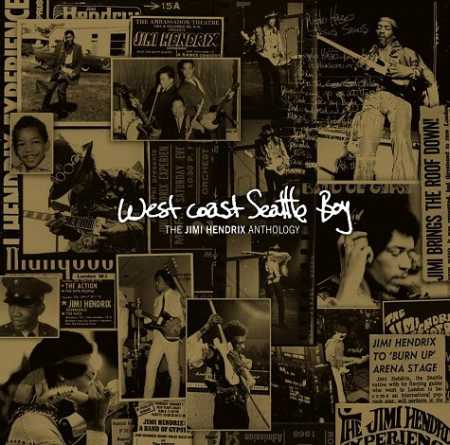
James Marshall "Jimi" Hendrix was an American guitarist and singer-songwriter. He is widely considered to be the greatest electric guitarist in the history of music, and one of the most influential musicians of his era across a range of genres. After initial success in Europe, he achieved fame in the United States following his 1967 performance at the Monterey Pop Festival. Later, Hendrix headlined the iconic 1969 Woodstock Festival and the 1970 Isle of Wight Festival. He often favored raw overdriven amplifiers with high gain and treble and helped develop the previously undesirable technique of guitar amplifier feedback. West Coast Seattle Boy: The Jimi Hendrix Anthology is a posthumous box set released in the United States and includes four discs of previously unreleased studio and live recordings. The box-set will also be available in a deluxe edition featuring 8 12" vinyl LPs. Disc one includes early performances of Hendrix as a session musician.Disc 101 - The Isley Brothers - Testify02 - Don Covay - Mercy, Mercy03 - Don Covay - Can't Stay Away04 - Rosa Lee Brooks - My Diary05 - Rosa Lee Brooks - Utee06 - Little Richard - I Don't Know What You Got But It's Got Me07 - Little Richard - Dancing All Around The World08 - Frank Howard & The Commanders - I'm So Glad09 - The Isley Brothers - Move Over And Dance10 - The Isley Brothers - Have You Ever Been Disappointed11 - Ray Sharpe - Help Me (Get The Feeling) Part One12 - The Icemen - (My Girl) She's A Fox13 - Jimmy Norman - That Little Old Groove Maker14 - Billy Lamont - Sweet Thang15 - King Curtis - Instant GrooveDisc 201 - Fire (1)02 - Are You Experienced (2)03 - May This Be Love (1)04 - Can You See Me (1)05 - The Wind Cries Mary (Live)06 - Love Or Confusion (1)07 - Little One (2)08 - Mr. Bad Luck (1)09 - Cat Talking To Me (1)10 - Castles Made Of Sand (2)11 - Tears Of Rage (2)12 - Hear My Train A Comin' (2)13 - 1983 (A Merman I Shall Turn To Be) (2)14 - Long Hot Summer Night (2)15 - My Friend (2)16 - Angel (2)17 - Calling All The Devil's Children (2)18 - New Rising Sun (1)Disc 301 - Hear My Freedom (2)02 - Room Full Of Mirrors (2)03 - Shame, Shame, Shame (2)04 - Messenger (2)05 - Hound Dog Blues (2)06 - Untitled Basic Track (2)07 - Star Spangled Banner (Live) (3)08 - Purple Haze (Live) (3)09 - Younghendrix (1)10 - Mastermind (2)11 - Message To Love (1)12 - Fire (Live) (2)13 - Foxey Lady (Live) (2)Disc 401 - Stone Free (Live) (2)02 - Burning Desire (2)03 - Lonely Avenue (2)04 - Everlasting First (1)05 - Freedom (2)06 - Peter Gunncatastrophe (1)07 - In From The Storm (1)08 - All God's Children (2)09 - Red House (Live) (2)10 - Play That Riff (2)11 - Bolero (1)12 - Hey Baby (New Rising Sun) (1)13 - Suddenly November Morning (2)(1) (Previously Unreleased Alternate Recording)(2) (Previously Unreleased Recording) (3) (Previously Unreleased Original Mix) LINK Part 1 LINK Part 2 |
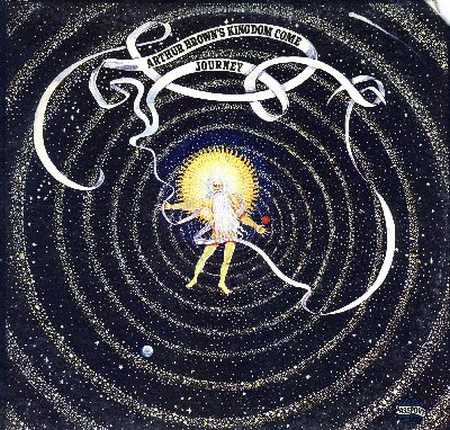 Kingdom Come were a British band of the 1970s, that played psychedelic, experimental progressive rock music. They were fronted by Arthur Brown, who gave them his theatrical style and voice. The combination ensured that the band was a hit on Britain's festival circuit, but lack of record sales, indifference from music critics, and poor record label promotion (especially in the US) led to its eventual demise in 1974. The band was later marketed as Arthur Brown's Kingdom Come in the United States due to name conflicts with an unrelated band with the same name. Kingdom Come were one of the first bands to use synthesizers, notably the VCS3, an early British synth used by Pink Floyd and Brian Eno among others at the time. The Mellotron also figured prominently in the group's repertoire, especially after the addition of Victor Peraino in the band's line-up. On the final album, Journey, recorded in November 1972, there was no drummer either on the record or on tour; all the drum sounds were from the Bentley Rhythm Ace, operated either by Victor Peraino or by Brown himself. Journey was the first album on which a drum machine produced all the percussion. Apart from Arthur Brown and guitarist Andy Dalby, the band included (at one time or another) Victor Peraino (keyboards), Julian Paul Brown (keyboards), Michael Harris (keyboards), Phil Shutt (bass), Desmond Fisher (bass), and Martin Steer (drums). "Ace Bentley," credited with drums on the final Kingdom Come album, was actually the Bentley Rhythm Ace, an early drum machine manufactured by the Ace Tone company of Japan (Ace Tone later evolved into the Roland Corporation).01 - Time Captives02 - Trinangles03 - Gypsy04 - Superficial Roadblocks05 - Conception06 - Spirit Of Joy07 - Come AliveLINK Kingdom Come were a British band of the 1970s, that played psychedelic, experimental progressive rock music. They were fronted by Arthur Brown, who gave them his theatrical style and voice. The combination ensured that the band was a hit on Britain's festival circuit, but lack of record sales, indifference from music critics, and poor record label promotion (especially in the US) led to its eventual demise in 1974. The band was later marketed as Arthur Brown's Kingdom Come in the United States due to name conflicts with an unrelated band with the same name. Kingdom Come were one of the first bands to use synthesizers, notably the VCS3, an early British synth used by Pink Floyd and Brian Eno among others at the time. The Mellotron also figured prominently in the group's repertoire, especially after the addition of Victor Peraino in the band's line-up. On the final album, Journey, recorded in November 1972, there was no drummer either on the record or on tour; all the drum sounds were from the Bentley Rhythm Ace, operated either by Victor Peraino or by Brown himself. Journey was the first album on which a drum machine produced all the percussion. Apart from Arthur Brown and guitarist Andy Dalby, the band included (at one time or another) Victor Peraino (keyboards), Julian Paul Brown (keyboards), Michael Harris (keyboards), Phil Shutt (bass), Desmond Fisher (bass), and Martin Steer (drums). "Ace Bentley," credited with drums on the final Kingdom Come album, was actually the Bentley Rhythm Ace, an early drum machine manufactured by the Ace Tone company of Japan (Ace Tone later evolved into the Roland Corporation).01 - Time Captives02 - Trinangles03 - Gypsy04 - Superficial Roadblocks05 - Conception06 - Spirit Of Joy07 - Come AliveLINK |
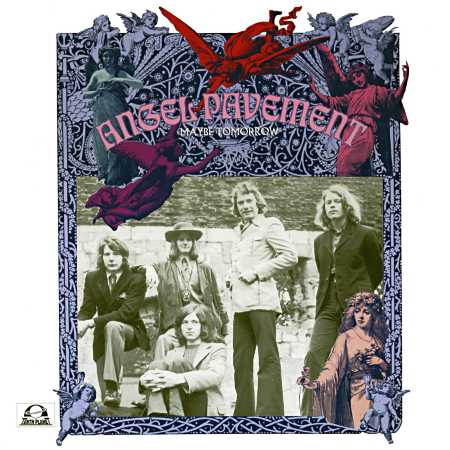 Anyone unfamiliar with Angel Pavement shouldn't feel too bad. After all, the band was hardly a household name in its heyday, and its peak of exposure consisted of a pair of failed singles at the very tail-end of the 1960s in England. But they were a seriously wonderful sunshine pop outfit from late 1960s, hailing from York, with a sound that was equal parts psychedelia and pop/rock in the best Hollies/Zombies/Beatles manner. The band, which took its name from a 1930 novel by J.B. Priestley (himself a Yorkshireman, natch), was assembled by guitarist/songwriter Alfie Shepherd out of the remnants of a soul-based outfit, Wesley Hardin's Shotgun Package, with Paul Smith (lead vocals), Dave Smith (guitar), Graham Harris (bass), and Alan Reeve (drums) (later replaced by Mike "Candy" Candler). They quickly developed an effective pop-oriented psychedelic sound, similar to what the Hollies were doing on Evolution and Butterfly, and the Zombies generated on Odessey & Oracle, with lush harmonies, glittering instrumental textures, horns and brass in the right places on the pop numbers. They managed to build a large following in their native York and also cut some early sides that heavily reflected all of those influences. The group's attempt to crack the London club scene coincided with their starting work on a debut album at Morgan Studios, but those efforts were interrupted by an offer to play a series of gigs for a few days in Mexico City in early 1969. Instead, they stayed for five months, and returned to London to pick up work on the album, a process interrupted by Dave Smith's departure (and his replacement by John Cartwright, who played guitar and trumpet). A pair of singles, "Baby You've Gotta Stay" and "Tell Me What I've Got to Do," issued through Fontana Records, failed to elicit any serious chart action in late 1969 and early 1970; a third single and their announcement of a forthcoming LP all ended up missing in action because of disputes between Shepherd and the studio's publishing arm. Their producer apparently put the final nail in the coffin, and they broke up at the end of 1970.(Ans)01 - The Man In The Shop On The Corner02 - Maybe Tomorrow03 - The Time Is Upon Us04 - Green Mello Hill05 - Little Old Man06 - When Will I See June Again07 - Genevieve08 - Water Woman09 - Napoleon10 - Socialising11 - Jennifer12 - Carrie13 - I'm A Dreamer14 - Baby You've Gotta Stay15 - I'm Moving OnLINK Anyone unfamiliar with Angel Pavement shouldn't feel too bad. After all, the band was hardly a household name in its heyday, and its peak of exposure consisted of a pair of failed singles at the very tail-end of the 1960s in England. But they were a seriously wonderful sunshine pop outfit from late 1960s, hailing from York, with a sound that was equal parts psychedelia and pop/rock in the best Hollies/Zombies/Beatles manner. The band, which took its name from a 1930 novel by J.B. Priestley (himself a Yorkshireman, natch), was assembled by guitarist/songwriter Alfie Shepherd out of the remnants of a soul-based outfit, Wesley Hardin's Shotgun Package, with Paul Smith (lead vocals), Dave Smith (guitar), Graham Harris (bass), and Alan Reeve (drums) (later replaced by Mike "Candy" Candler). They quickly developed an effective pop-oriented psychedelic sound, similar to what the Hollies were doing on Evolution and Butterfly, and the Zombies generated on Odessey & Oracle, with lush harmonies, glittering instrumental textures, horns and brass in the right places on the pop numbers. They managed to build a large following in their native York and also cut some early sides that heavily reflected all of those influences. The group's attempt to crack the London club scene coincided with their starting work on a debut album at Morgan Studios, but those efforts were interrupted by an offer to play a series of gigs for a few days in Mexico City in early 1969. Instead, they stayed for five months, and returned to London to pick up work on the album, a process interrupted by Dave Smith's departure (and his replacement by John Cartwright, who played guitar and trumpet). A pair of singles, "Baby You've Gotta Stay" and "Tell Me What I've Got to Do," issued through Fontana Records, failed to elicit any serious chart action in late 1969 and early 1970; a third single and their announcement of a forthcoming LP all ended up missing in action because of disputes between Shepherd and the studio's publishing arm. Their producer apparently put the final nail in the coffin, and they broke up at the end of 1970.(Ans)01 - The Man In The Shop On The Corner02 - Maybe Tomorrow03 - The Time Is Upon Us04 - Green Mello Hill05 - Little Old Man06 - When Will I See June Again07 - Genevieve08 - Water Woman09 - Napoleon10 - Socialising11 - Jennifer12 - Carrie13 - I'm A Dreamer14 - Baby You've Gotta Stay15 - I'm Moving OnLINK |
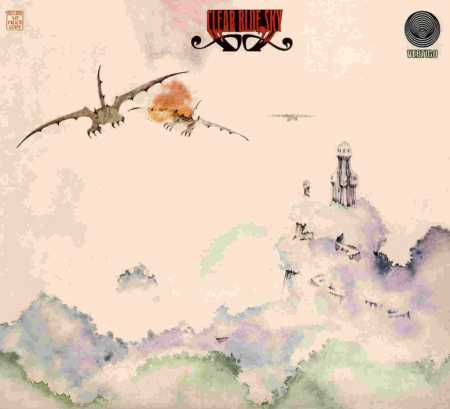 Considered a classic of the early seventies by a number of critics, the debut album from Clear Blue Sky was released at a time when the rock world was undergoing a number of radical changes. The psychedelic era was coming to a close with progressive rock taking over the mantle of rocks' leading genre. However, not all bands followed the modus operandi of progressive rock bands, using classical music and jazz music as the platform for their musical trip. Some bands, most notably those within the hard rock genre, used a form of heavy blues as their launching pad. Clear Blue Sky were just one of these bands that have a most definite blues influence. However, their ability to introduce a number of variations within their musical structure such as subtle classical influences as well as a degree of complexity that went beyond the average band enabled their music to be appreciated by a wider range of audiences. The album starts with the suite, Journey To the Inside Of The Sun which occupied the whole of Side 1 of the original vinyl album, and is in itself subdivided into three tracks. The band was a three piece from Acton, who were only 18 years old when the album was issued in 1970. John Simms - guitars, vocals; Ken White - drums; Mark Sheather – bass.Journey To The Inside Of The Sun01 - (a) Sweet Leaf02 - (b) The Rocket Ride03 - (c) I'm Coming Home04 - You Mystify05 - Tool Of My Trade06 - My Heaven07 - BirdcatcherLINK Considered a classic of the early seventies by a number of critics, the debut album from Clear Blue Sky was released at a time when the rock world was undergoing a number of radical changes. The psychedelic era was coming to a close with progressive rock taking over the mantle of rocks' leading genre. However, not all bands followed the modus operandi of progressive rock bands, using classical music and jazz music as the platform for their musical trip. Some bands, most notably those within the hard rock genre, used a form of heavy blues as their launching pad. Clear Blue Sky were just one of these bands that have a most definite blues influence. However, their ability to introduce a number of variations within their musical structure such as subtle classical influences as well as a degree of complexity that went beyond the average band enabled their music to be appreciated by a wider range of audiences. The album starts with the suite, Journey To the Inside Of The Sun which occupied the whole of Side 1 of the original vinyl album, and is in itself subdivided into three tracks. The band was a three piece from Acton, who were only 18 years old when the album was issued in 1970. John Simms - guitars, vocals; Ken White - drums; Mark Sheather – bass.Journey To The Inside Of The Sun01 - (a) Sweet Leaf02 - (b) The Rocket Ride03 - (c) I'm Coming Home04 - You Mystify05 - Tool Of My Trade06 - My Heaven07 - BirdcatcherLINK |
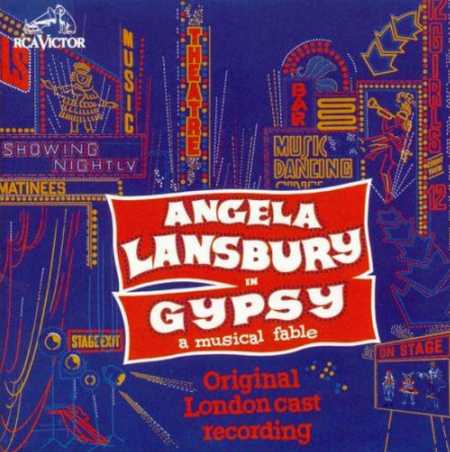 Gypsy is a musical with music by Jule Styne, lyrics by Stephen Sondheim, and a book by Arthur Laurents. Gypsy is loosely based on the 1957 memoirs of Gypsy Rose Lee, the famous striptease artist, and focuses on her mother, Rose, whose name has become synonymous with "the ultimate show business mother." It follows the dreams and efforts of Rose to raise two daughters to perform onstage and casts an affectionate eye on the hardships of show business life. The character of Louise is based on Lee, and the character of June is based on Lee's sister, the actress June Havoc. The musical contains many songs that became popular standards, including "Small World," "Everything's Coming up Roses", "You'll Never Get Away from Me," and "Let Me Entertain You." It is frequently considered one of the crowning achievements of the mid-20th century's conventional musical theatre art form, often called the "book musical". Gypsy has been referred to as the greatest American musical by numerous critics and writers, among them Ben Brantley and Frank Rich. Rich even calls it the American musical theatre's answer to King Lear. Theater critic Clive Barnes wrote that "Gypsy is one of the best of musicals..." and described the character of Rose as "one of the few truly complex characters in the American musical....". The original Broadway production opened on May 21, 1959 at The Broadway Theatre and subsequently transferred to the Imperial Theatre, running for 702 performances after two previews. In 1973, it was announced that Elaine Stritch would be starring in the first London production of the show. However, when ticket sales proved to be unsuccessful, producers hired the more familiar Angela Lansbury. (According to Craig Zadan, "The ...producers were not able to raise the required capital on Stritch's name, and the promise of a new production...became ominously distant." The London production opened at the Piccadilly Theatre in the West End on May 29, 1973 and closed on March 2, 1974 after 300 performances. It was produced by Edgar Lansbury (Angela's brother) and directed by the show's author, Arthur Laurents with choreography reproduced by Robert Tucker. The supporting cast featured Zan Charisse, Barry Ingham, Debbie Bowen and Bonnie Langford. On September 23, 1974, Lansbury's West End production transferred to Broadway's Winter Garden Theatre for a planned limited run of 120 performances after four previews. The cast remained mostly the same in New York, except that Rex Robbins played Herbie, Maureen Moore (later Bernadette Peters' understudy as Rose in the 2003 revival) played the adult June, and Mary Louise Wilson was Tessie Tura. Angela Lansbury, having reprised her role as Rose, won the 1975 Tony Award.01 - Overture02 - Some People03 - Small World04 - Let Me Entertain You (Montage)05 - Mr. Goldstone06 - Little Lamb07 - You'll Never Get Away From Me08 - If Monna Was Married09 - All I Need Is The Girl10 - Everything's Coming Up Roses11 - Together12 - You Gotta Get A Gimmick13 - Let Me Entertain You14 - Rose's TurnLINK Gypsy is a musical with music by Jule Styne, lyrics by Stephen Sondheim, and a book by Arthur Laurents. Gypsy is loosely based on the 1957 memoirs of Gypsy Rose Lee, the famous striptease artist, and focuses on her mother, Rose, whose name has become synonymous with "the ultimate show business mother." It follows the dreams and efforts of Rose to raise two daughters to perform onstage and casts an affectionate eye on the hardships of show business life. The character of Louise is based on Lee, and the character of June is based on Lee's sister, the actress June Havoc. The musical contains many songs that became popular standards, including "Small World," "Everything's Coming up Roses", "You'll Never Get Away from Me," and "Let Me Entertain You." It is frequently considered one of the crowning achievements of the mid-20th century's conventional musical theatre art form, often called the "book musical". Gypsy has been referred to as the greatest American musical by numerous critics and writers, among them Ben Brantley and Frank Rich. Rich even calls it the American musical theatre's answer to King Lear. Theater critic Clive Barnes wrote that "Gypsy is one of the best of musicals..." and described the character of Rose as "one of the few truly complex characters in the American musical....". The original Broadway production opened on May 21, 1959 at The Broadway Theatre and subsequently transferred to the Imperial Theatre, running for 702 performances after two previews. In 1973, it was announced that Elaine Stritch would be starring in the first London production of the show. However, when ticket sales proved to be unsuccessful, producers hired the more familiar Angela Lansbury. (According to Craig Zadan, "The ...producers were not able to raise the required capital on Stritch's name, and the promise of a new production...became ominously distant." The London production opened at the Piccadilly Theatre in the West End on May 29, 1973 and closed on March 2, 1974 after 300 performances. It was produced by Edgar Lansbury (Angela's brother) and directed by the show's author, Arthur Laurents with choreography reproduced by Robert Tucker. The supporting cast featured Zan Charisse, Barry Ingham, Debbie Bowen and Bonnie Langford. On September 23, 1974, Lansbury's West End production transferred to Broadway's Winter Garden Theatre for a planned limited run of 120 performances after four previews. The cast remained mostly the same in New York, except that Rex Robbins played Herbie, Maureen Moore (later Bernadette Peters' understudy as Rose in the 2003 revival) played the adult June, and Mary Louise Wilson was Tessie Tura. Angela Lansbury, having reprised her role as Rose, won the 1975 Tony Award.01 - Overture02 - Some People03 - Small World04 - Let Me Entertain You (Montage)05 - Mr. Goldstone06 - Little Lamb07 - You'll Never Get Away From Me08 - If Monna Was Married09 - All I Need Is The Girl10 - Everything's Coming Up Roses11 - Together12 - You Gotta Get A Gimmick13 - Let Me Entertain You14 - Rose's TurnLINK |
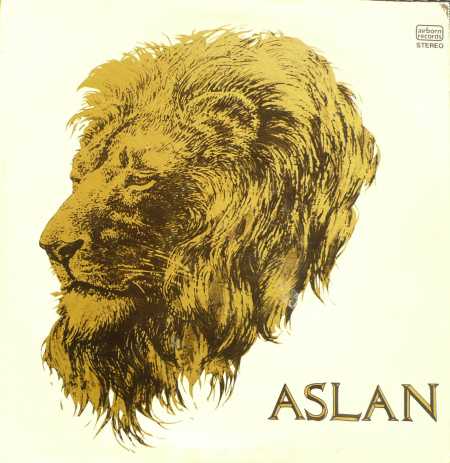 Christian Classic Rock/Rural Rock/Folk Rock band. Homespun rural lazy-Sunday-afternoon Georgia folkrock outfit featuring Scott Roley. A light basement feel pervades side 1 with piano out in front and twangy electric guitar. Side 2 is quieter, mostly heartfelt acoustic ballads. Gentle male/female harmonies throughout. Nice use of harpsichord on 'Sonshine'. 'Further Up And Further In' would resurface on Albrecht & Roley as well as the first Albrecht, Roley, & Moore lp. Assisted and engineered by Ron Moore. (Ken Scott)01 - Glory Day02 - His Way03 - Minnesota04 - Time To Move05 - On My Way06 - Ted's Song07 - Further Up And Further In08 - Sonshine09 - Marriage Of The Lamb10 - Celebrate LoveLINK Christian Classic Rock/Rural Rock/Folk Rock band. Homespun rural lazy-Sunday-afternoon Georgia folkrock outfit featuring Scott Roley. A light basement feel pervades side 1 with piano out in front and twangy electric guitar. Side 2 is quieter, mostly heartfelt acoustic ballads. Gentle male/female harmonies throughout. Nice use of harpsichord on 'Sonshine'. 'Further Up And Further In' would resurface on Albrecht & Roley as well as the first Albrecht, Roley, & Moore lp. Assisted and engineered by Ron Moore. (Ken Scott)01 - Glory Day02 - His Way03 - Minnesota04 - Time To Move05 - On My Way06 - Ted's Song07 - Further Up And Further In08 - Sonshine09 - Marriage Of The Lamb10 - Celebrate LoveLINK |
|
|
Statistics
Total online: 1 Guests: 1 Users: 0
|








